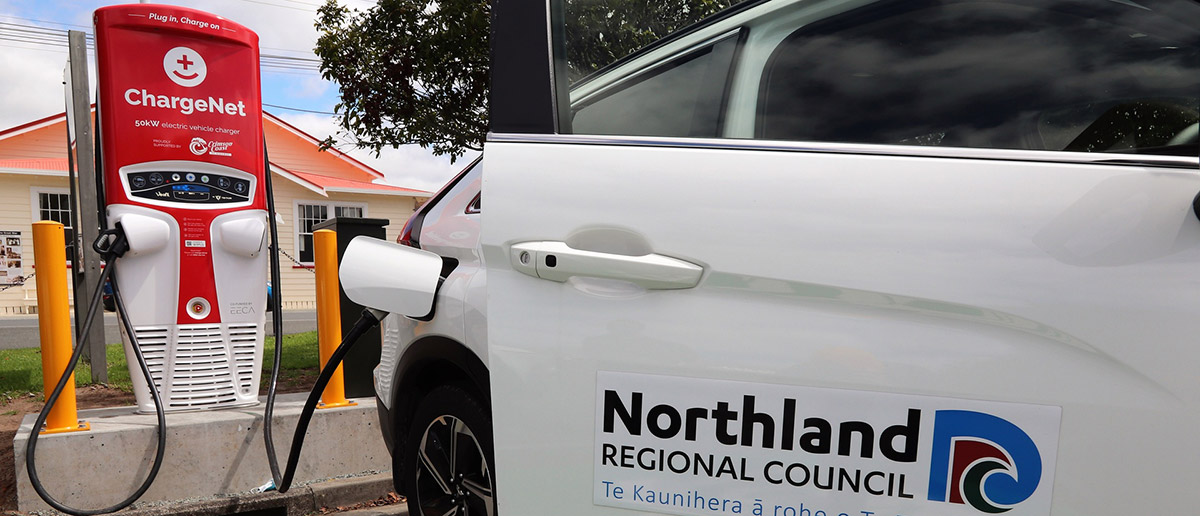What we do
As your regional council, we're working with you to create a healthy environment, a strong economy and resilient communities.
Our staff and business groups get involved in a wide range of activities.
The more Northland grows, the more work we need to do. Our mahi falls under three categories:
- Natural environment
- Community resilience
- Regional leadership
Natural environment
Northland’s beaches, marine environment, forests, waterways, birds and animals are a big part of why we love living here. Protecting those natural taonga forms a large portion of our job.
Biosecurity and biodiversity
We’re working with others to get rid of pests and help native life thrive.
The word biodiversity covers all life forms: plants, animals, micro-organisms and the ecosystems on the land or in the water where they live. We are one of the organisations whose job it is to maintain and protect our native biodiversity. We also support individuals and groups to keep the momentum of their biodiversity work going.
Biosecurity is about protecting our environment, economy and way of life from the harmful impacts of pest animals, pest plants and diseases. Our officers work with landowners to target regional pest plants and animals, and help the rural economy by controlling possums and deer to stop the spread of bovine tuberculosis.
Land and water
We’re caring for Northland’s coast, land and waterways.
We encourage landowners to recognise the economic and social value of managing land in a way that will protect the resource and meet the needs of current and future generations. Our officers work with landowners and rural community groups to care for their land, improve water quality and promote soil conservation.
We also offer funding to individuals and organisations for a variety of purposes, such as riparian fencing and planting, pest control and erosion control. The biggest fund is the Environment Fund, which since 1996 has provided more than $11 million to help people improve and protect Northland’s natural environment.

We offer funding to help with fencing waterways.
Community resilience
Although no-one can predict the next challenge Northland will face, being proactive is vital. We work together with communities and other councils to build a resilient region.
Flood protection
The region’s rivers can put homes, farmland, jobs, livelihoods and property at risk from flooding. We help communities protect themselves from the effects of flooding. See the Natural hazards portal
Community resilience
Northland Regional Council co-ordinates the Civil Defence Emergency Management Group for the region. This group works together to minimise the potential effects of emergencies, prepare ourselves and the community, respond to emergencies and help the community to recover.
Being resilient in the face of a changing climate is also a key focus. We are investigating, mapping and planning for the natural hazards we already face, and are part of a group that’s coordinating climate change adaptation planning across Northland.
Harbour safety
We look after the navigational safety of all vessels in our region’s lakes and harbours – from Kaipara in the south to Parengarenga in the north – and around the regional coastline. We encourage safe boating behaviour, set rules for protecting the marine environment, are ready to respond in case of a marine oil spill, and much more.
Transport
We help plan the region’s roading network and administer a number of passenger bus services around Northland.
Climate change
Underpinning all this mahi is the awareness that we’re living in the ever-changing world, te ao hurihuri.
The past and ongoing release of greenhouse gases is already altering the environment that supports us, threatening to cause severe social and environmental disruption.
More frequent flooding, droughts and coastal erosion are already a reality, posing serious risks to biodiversity and ecosystems, roading access and water resilience.
Our vision is that Te Taitokerau is resilient in a changing climate, and transitions proactively and equitably to a thriving net-zero emissions society before 2050.
Read more about how NRC is tackling climate change, and what you can do too.
To read about how NRC is part of a region-wide collaboration to develop a climate adaptation plan. Visit: catt.org.nz

Playing our part - increasing the number of EVs in our fleet.
Regional leadership
As a regional council, we continually advocate for region-wide projects that have a significant impact on Northland’s wellbeing.
Community and Māori
Making decisions in partnership with Māori means we can help nurture strong Māori communities, and incorporate their values into Northland’s future.
Council remains dedicated to fulfilling its obligations under Te Tiriti. We’re making decisions in partnership with Māori by adopting 50:50 representation on council’s working parties, and through co-governance initiatives such as the Kaipara Moana Remediation Programme joint committee. Iwi/hapū representatives from across Northland continue to join with council on Te Taitokerau Maori and Council Working Party.
At different times of the year, we offer awards to individuals and organisations. Whakamānawa ā Taiao – Environmental Awards is our flagship event, and has been running since 2019. We also provide numerous schools with environmental education awards, and support a range of business and rural industry awards.
Our specialist staff host seminars and field days designed to educate Northlanders about topics linked to the environment. Educators visit schools to deliver environmental education initiatives, including the very popular Enviroschools programme. We also produce a wide range of publications and fact sheets.
Economic development
We support economic development, including the promotion of Northland tourism, through Northland Inc Ltd, the region's economic development agency. It is a Council Controlled Organisation (CCO) and a limited liability company. Until 1 July 2021, it was 100% owned by NRC. From 1 July 2021, it is jointly and equally owned by NRC, and Kaipara and Far North district councils.
Find out more about Northland Inc and its board members.
Our Investment and Growth Reserve is used to fund projects that increase our region's economic performance. The initial criteria for the use of the reserve was published in our Long Term Plan 2021-2031.

Working together to restore the health and mauri of Kaipara Moana.
